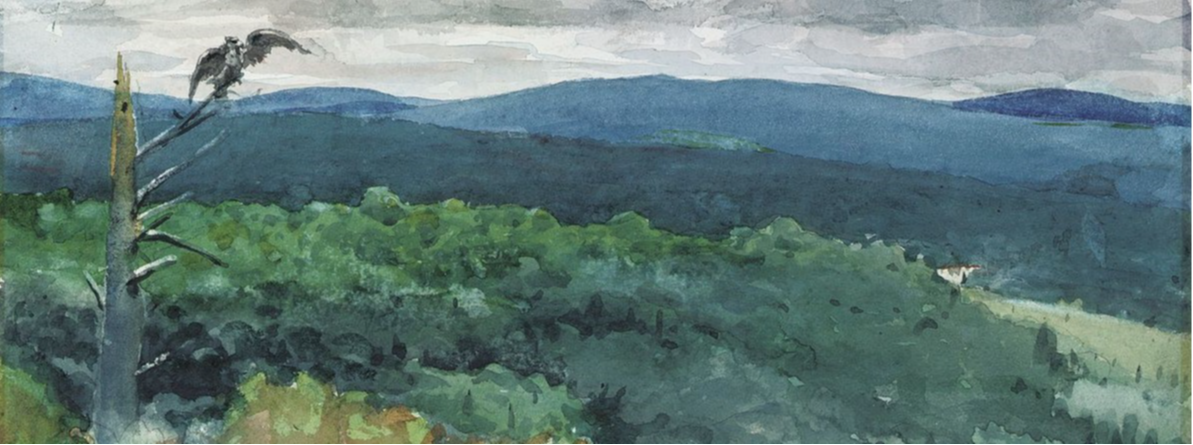September 2023
Dear Friend of Golden View Classical Academy,
In August we received a complaint from an attorney in Washington, D.C. who works for an organization that claims to police the boundary between church and state. Our apparent offense was the inclusion of religious content in Western Civilization I (a 9th Grade class), and in the letter we are accused of forcing students to accept the truth of biblical accounts of events such as the burning bush and the flood. By doing that, the attorney claims, we are violating the Establishment Clause of the First Amendment in the U.S. Constitution.
It’s a big accusation, and one which we think is entirely without support, in fact and law. We penned a response and sent it to them on September 17 (Constitution Day). Here it is, in full:
Dear Mr. Doe,
Happy Constitution Day!
You and your client accuse a teacher, the principal, and the Board of Directors of Golden View Classical Academy, in their various roles and functions, of violating the US Constitution’s Establishment Clause. Specifically, by including biblical passages in the course of instruction and in student assessment, you accuse us of “fly[ing] in the face of history and the law,” and furthermore that our actions “cannot be squared with the constitutional duties of a public school.” This is a grave accusation, and had the assertions been grounded in an accurate understanding of the course or curriculum, we’d consider what might be done to remedy our errors. As it stands, we do not share your or your client’s concerns about any such violation.
To prove your point, you have provided a hand-picked list of questions from class assignments in our 9th Grade Western Civilization I class, and have not included any of the meaningful context that would reveal the baselessness of the accusation. Particularly instructive is the following question you raise from one of our assignments:
“Consider how God creates. Consider how Enlil and the other gods create. What does this reveal about the Hebrew God, Enlil, and the other gods?”
Do you notice how a reasonable person would see that it proves our evenhandedness by including two wildly different creation accounts, and gods? Your case would be better had you not included it, just as you have not included the very great majority of questions from our class. As part of Western Civilization, not only do students study Greek and Roman religions, but Jewish and Christian and others. By including this question, are you accusing us of reviving the ancient Sumerian pantheon and having students “regurgitate” answers?
What we do in this class and in various other places in the curriculum, with regards to the Bible specifically, is merely take it seriously.1 We take its words as worth study not just for a believer but for anyone with the humility to learn from an ancient text. Maybe an analogy would help. When we teach Macbeth, we don’t tell students, or even casually encourage them to believe, that three bearded witches once gathered in a wood and boiled a bubbling hell-broth. We do, however, teach them that something can be learned about human nature regardless of their inclination to the occult. Nor when we teach The Wind in the Willows, do we try to convince, or demand students to regurgitate, facts associated with the existence of a talking toad, let alone a toad who drives cars and lies to his friends. We do, however, teach them that good friends keep their word, even if one’s friend happens to be a toad. The point in each case is to enter empathetically into another world and another way of seeing things, to extend students’ moral imagination.
And it would beggar belief to assert that the Bible is somehow not part of a course in Western Civilization.2 More broadly, one could not reasonably maintain that religion and religious texts are not central to our understanding of history, any less than art or technology are. Indeed, a close study of these things - including explicit biblical passages - is required for a historically educated citizen who intends to participate in our republic.3
Golden View students will be far better able to understand their world than the students harmed by the emaciated education which your client would have us contemplate. They will be able to enter sympathetically into conversation with fellow citizens with whom they may disagree. They will have an expanded moral and literary imagination, and they will understand the west and thus part of their world with more depth and sensitivity.
But this isn’t just my opinion, it seems. I came to your letter with a cursory understanding of Establishment Clause jurisprudence, and no familiarity with district court opinions. The citations you provided have been helpful. Since the Supreme Court has not directly ruled on the question of instruction of the Bible as literature or history, it is helpful to see how these other cases have approached that question. One that struck me was Doe v. Porter, wherein the Court agreed with a prior decision that “the Bible may be taught in the public schools if it is taught by trained educators, and if it does not encourage a commitment to a set of religious beliefs. Such biblical instruction may include "non-devotional instruction in biblical literature, biblical history, and biblical social customs." Seeing support for what we are doing from the case history is comforting.
But given what appears to be the sound constitutional basis of our approach, I have to wonder about the spirit that animates your client. He (or she?) seems to suggest that anything that merely smells of religion (and it appears that only one religion is singled out as particularly odious), is peremptorily suspect as part of a well-rounded public education. He (or she?) suggests, furthermore, that the historical record which sustains the centrality of religion must be ignored or abandoned. This Rawlsian obsession with “public reason” weakens our students’ moral character by demanding at the outset that we ought not teach students to suspend their judgment for a moment to enter the mind of a late republican Roman, an ancient Jew, or an even more ancient Sumerian. Such was not the vision of the Establishment Clause, whether we cite Madison, Jefferson, Washington, or modern jurisprudence.4
Perhaps one reason that America is so divided today is a general unwillingness to engage in empathy, to strive to see things the way another does. Proper historical study does just that. We study Rome for a different view, both in time and place. We enter the world of Samuel not so we can teach students to believe in the Witch of Endor, but so that they can understand a world and mind that did, so that they can extend their sympathies and even their own understanding of symbolism, metaphor, and narrative, as well as the historical record that is animated by such understanding.
We will do nothing to change our curriculum, and the teacher you name has my and our Board’s full support.
Sincerely,
Dr. Garrow
Principal, Golden View Classical Academy
_________________________________________________________________
1“It certainly may be said that the Bible is worthy of study for its literary and historical qualities. Nothing we have said here indicates that such study of the Bible or religion, when presented objectively as part of a secular program of education, may not be effected consistently with the First Amendment” Abington v. Schempp (1963).
2 “The importance of the Bible independent of its religious significance, and the influence that this book has had on Western civilization cannot be gainsaid” Gibson v. Lee (1998).
3 “We as Americans, should especially be aware of the influence that the Bible and its principles have had on the founding and development of our nation” Crockett v. Sorenson (1983).
4 See Hamburger, Separation of Church and State (2002).






